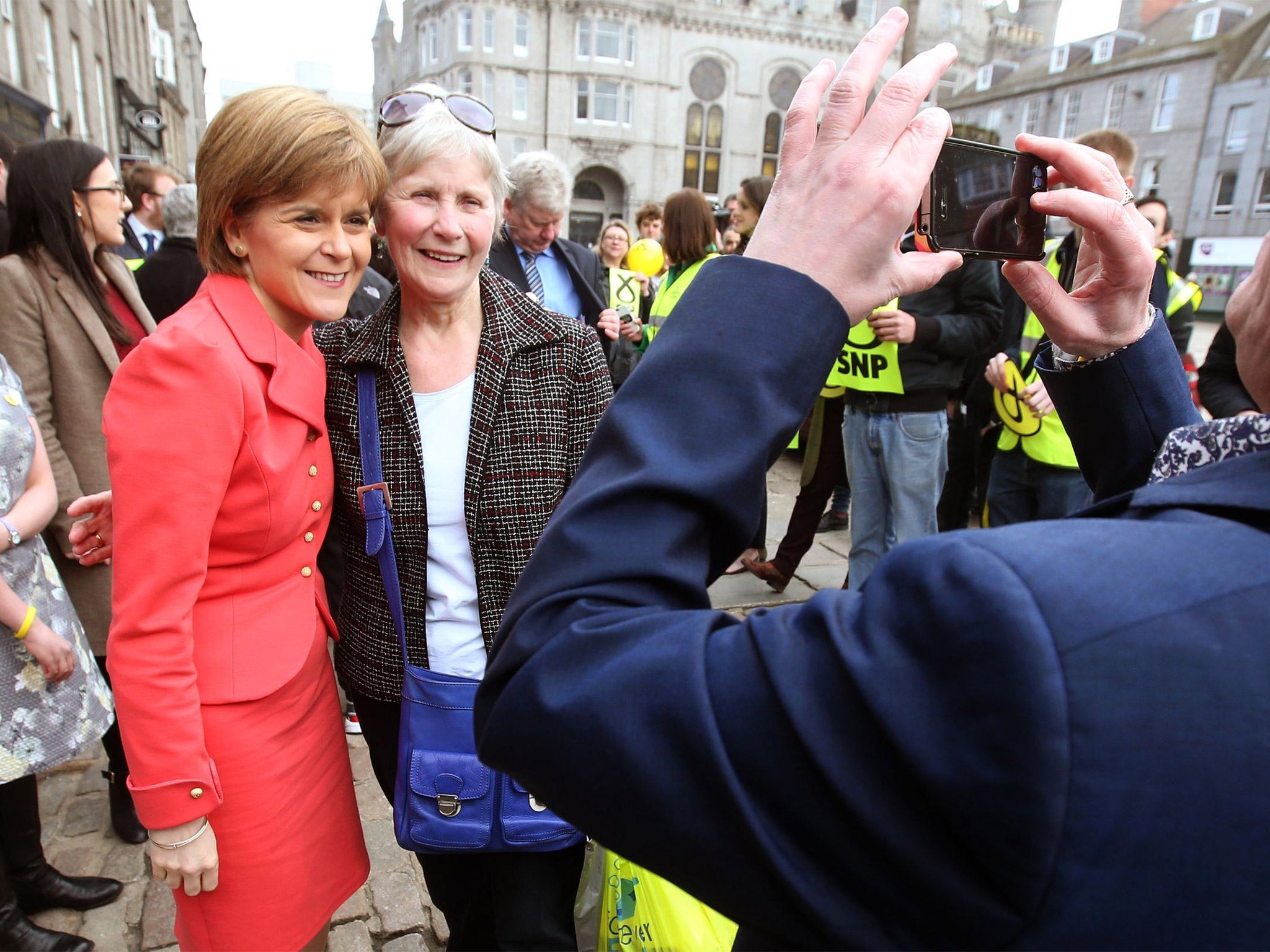General Election 2015: Potential economic short-fall of £7.6bn Scotland would face if given control of tax 'irrelevant', says Nicola Sturgeon
Labour’s Jim Murphy accused Sturgeon of 'making it up as she goes along'

A potential economic short-fall of £7.6bn that would face a Scottish government given full control of tax and spending by Westminster, has been described as “irrelevant” by Nicola Sturgeon.
The SNP leader dismissed recent independent analysis by the Institute for Fiscal Studies (IFS) as “snap-shot, one year figure” and insisted the scale of the deficit should not mean Scotland was denied full control of its own economy.
Ms Sturgeon, engaged in fiscal combat with the leaders of Scotland’s three main parties for the third time in less than a week, was accused by Labour’s Jim Murphy, of “making it up as she goes along” after she failed to explain what “magic policy” the nationalists’ could deploy to address the funding gap.
In pictures: Experts' predictions for the General Election - 11/04/15
Show all 10Appearing on the BBC’s Sunday Politics programme, which included Scottish Tory leader Ruth Davidson, and Liberal Democrat,Willie Rennie, Ms Sturgeon said that “full fiscal autonomy” would mean a nationalist-led government in Holyrood having “powers” to grow the Scottish economy.
In heated and often chaotic studio debate, where all four politicians attempted to speak over and shout each down, Ms Sturgeon was repeatedly pressed to explain how Scotland could deliver twice the growth rate of the rest of the developed word, including the United States.
There was no answer from her other than a brief suggestion that Scotland would resort to borrowing on the international money markets and negotiations with Westminster would lessen the scale of the funding gap.
Although the two televised debates last week, in Edinburgh and Aberdeen, appeared to put the SNP on the back foot after Ms Sturgeon was forced to admit that another independence referendum could be back on the political agenda within 12 months, the party’s poll ratings in Scotland continue to rise.
Labour are still forecast to be left with only a handful of Scottish MPs on May 7.
This is the dilemma facing her main opponents in Scotland: the harder they attack the nationalists, the more impregnable Ms Sturgeon’s position looks.
One pro-SNP commentator said that while the SNP had been “fairly weak” on the finances of fiscal autonomy, “this doesn’t seem to matter very much". He said Scotland had “fallen in love with Sturgeon; she is adored.”
Writing in the Sunday Herald newspaper, regarded as an unquestioning supporter of independence, the SNP leader said her opponents in the 2015 election had re-engaged in the “fear mongering” of the referendum, and did not want to hear “an alternative approach" to “the dismal Westminster consensus on austerity.”
The Independent has got together with May2015.com to produce a poll of polls that produces the most up-to-date data in as close to real time as is possible.
Click the buttons below to explore how the main parties' fortunes have changed:
All data, polls and graphics are courtesy of May2015.com. Click through for daily analysis, in-depth features and all the data you need. (All historical data used is provided by UK Polling Report)
Subscribe to Independent Premium to bookmark this article
Want to bookmark your favourite articles and stories to read or reference later? Start your Independent Premium subscription today.

Join our commenting forum
Join thought-provoking conversations, follow other Independent readers and see their replies